Of all motor vehicle accidents, truck accidents stand out as particularly severe and complex. The aftermath of a truck accident can be highly traumatic, leaving victims with life-altering injuries and substantial financial burdens. In such cases, determining liability becomes paramount in seeking justice and compensation.
Truck accident cases often involve multiple parties, each with distinct roles and responsibilities. Pinpointing the party or parties responsible requires a thorough assessment of the circumstances leading up to the accident. It takes a skilled Austin truck accident lawyer to untangle the web of liability after such an accident.
Who is Liable for Your Truck Accident?
The Truck Driver: First Line of Responsibility
In the majority of truck accidents, the driver of the truck is often the first party to be scrutinized for liability. The driver’s actions leading up to the accident, such as speeding, distracted driving, or violating traffic rules, can directly contribute to the collision.
One common cause of truck accidents is distracted driving. The extensive hours spent on the road can tempt truck drivers to engage in activities that divert their attention from the task at hand. Texting, talking on the phone, or even eating can lead to a lapse in concentration, resulting in a catastrophic accident.
negligence on the part of the truck driver is another critical factor. If you can prove that the driver failed to adhere to safety regulations, drove while fatigued, or operated the vehicle under the influence of drugs or alcohol, they may be liable for the accident.
Factors contributing to driver liability may include:
- Negligence: If the truck driver fails to exercise reasonable care, engages in reckless behavior, or violates traffic laws, they may be liable for the accident.
- Impaired Driving: If the driver operates the truck under the influence of alcohol or drugs, they can be criminally and civilly liable for resulting damages.
- Fatigue: Fatigue-related accidents can occur if a driver violates hours-of-service regulations, leading to impaired judgment and slower reaction times.
Employer Liability: The Doctrine of Respondeat Superior
Truck drivers are often employees of trucking companies. Under the legal doctrine of respondeat superior, employers can be held vicariously liable for the actions or inactions of their employees. If you can demonstrate that the driver was acting within the scope of their employment at the time of the accident, the trucking company may share in the responsibility for the collision.
The Trucking Company: Corporate Responsibility
Trucking companies play a primary role in the safe operation of commercial vehicles. From maintenance schedules to hiring practices, these companies are responsible for ensuring that their fleets and drivers comply with industry regulations.
- Maintenance Negligence: Improper maintenance of trucks is a leading cause of accidents. If you can establish that a trucking company neglected routine maintenance, failed to address known mechanical issues, or overlooked necessary repairs, it may be liable for an accident resulting from a mechanical failure.
- Negligent Hiring and Training Practices: Trucking companies must exercise due diligence when hiring and training their drivers. Negligent hiring practices, such as employing drivers with a history of traffic violations or lacking proper qualifications, can expose the company to liability. Insufficient training programs that fail to adequately prepare drivers for the demands of the job also contribute to the risk of accidents.
Manufacturers and Suppliers: Product Liability in Truck Accidents
The equipment used in trucks, including parts and components, can be a source of liability. If a defect in the truck or its components contributed to the accident, the manufacturer or supplier of the faulty part may be liable per product liability laws.
Defective Truck Parts: Truck accidents can result from defects in various components, such as brakes, tires, or steering systems. Determining whether a defect played a role often involves a thorough investigation, including accident analysis of the crash scene and the damaged vehicle.
Failure to Warn: In addition to the quality of the components, manufacturers may be held liable for not providing adequate warnings about potential risks associated with their products. The manufacturer can be accountable if a lack of proper warnings or instructions contributed to the truck accident.
Government Agencies: Road Design and Maintenance
Sometimes, liability for a truck accident extends beyond individual drivers and companies to include government entities responsible for road design and maintenance.
- Poor Road Conditions: Inadequate road design or maintenance can create hazardous conditions contributing to crashes. Potholes, uneven surfaces, or poorly marked construction zones can be factors for which government agencies may be held accountable.
- Traffic Signal and Signage Issues: Malfunctioning traffic signals, missing or obscured signage, and other road-related issues can lead to confusion and accidents. When such problems are contributing factors, government agencies may be subject to legal action.
Truck Loaders: Ensuring Cargo Safety
The role of truck loaders is a crucial aspect when examining liability in truck accidents. While they may not be the first parties that come to mind, their responsibilities in ensuring proper cargo loading and securement can significantly impact the safety of the truck and other road users.
Truck loaders, or those responsible for loading and securing cargo onto a commercial truck, play a critical role in maintaining the stability and safety of the vehicle during transit.
- Proper Loading Practices: One of the primary responsibilities of truck loaders is to ensure that cargo is loaded evenly and securely. Poorly loaded cargo can lead to imbalance issues, making the truck more prone to tipping over or losing control. If a truck crash occurs due to improperly loaded cargo, the truck loader may be liable for negligence.
- Cargo Securement: Cargo must be adequately secured to prevent it from shifting or falling off while in motion. Improperly secured cargo can pose serious dangers to other drivers on the road. If an accident results from cargo that was not adequately restrained, the truck loader may be considered negligent and liable for the damages.
- Weight Distribution: Ensuring proper weight distribution within the truck is crucial for maintaining stability. Overloaded trucks or unevenly distributed cargo can lead to handling problems, especially during turns or sudden maneuvers. If an accident occurs due to issues related to weight distribution, the truck loader may be accountable.
Determining liability for a truck accident is a multifaceted process that requires a thorough investigation into the actions of all involved parties. From the truck driver and the trucking company to manufacturers, suppliers, truck loaders, and government entities, each may bear a portion of the responsibility for the collision.
How Lawyers Establish Liability in Truck Accidents
Determining liability in the aftermath of a truck accident is a complex undertaking that demands a comprehensive investigation and scrutiny of pertinent facts and evidence. Unfortunately, individuals lacking the necessary knowledge and skills may struggle to assess the circumstances and identify the responsible parties. This is particularly true for victims in the process of recovering from physical and emotional injuries sustained in an accident.
On the other hand, truck accident attorneys employ a systematic approach to ascertain liability, adhering to key steps in the aftermath of such incidents. Legal professionals take several steps to determine liability effectively:
Collecting Evidence
Lawyers initiate the process by gathering all available evidence related to the accident. This comprehensive collection may include police reports, witness statements, photographs, video footage, and any other documentation or physical evidence from the scene. Additionally, they obtain essential documents such as maintenance records, the driver’s logbook, black box data from the truck (if available), and relevant paperwork from the trucking company.
Accident Reconstruction
Collaborating with accident reconstruction experts, attorneys utilize the amassed evidence to recreate the accident scene. This involves carefully analyzing vehicle size and speed, vehicle damage, road conditions, skid marks, and other factors to discern the sequence of events leading to the accident and identify potential at-fault parties.
Driver Investigation
Lawyers research the truck driver’s background, scrutinizing driving history, training records, employment records, and compliance with federal and state regulations. Factors such as driver intoxication, fatigue, distraction, or violations of traffic laws are considerations to determine the driver’s contribution to the accident.
Trucking Company Investigation
An in-depth examination of the trucking company follows, including policies, hiring practices, training programs, vehicle maintenance records, and compliance with industry regulations. Lawyers assess whether the company’s actions, such as negligence, inadequate supervision, or failure to ensure driver compliance with safety standards, played a role in the accident.
Consultation with Experts
Lawyers may consult with various experts, including accident reconstruction specialists, medical professionals, engineers, and industry experts. These experts contribute specialized knowledge to the case, offering insights into technical aspects, evaluating the extent of injuries, and aiding in establishing liability. Truck accident attorneys often maintain extensive networks of experts to secure comprehensive assessments for their clients.
Reviewing Applicable Laws and Regulations
Attorneys scrutinize federal and state laws and regulations governing the trucking industry to assess compliance with guidelines such as hours-of-service regulations, weight limits, driver qualifications, and maintenance standards. Non-compliance with these regulations frequently serves as an indicator of liability.
Establishing Negligence
By analyzing the collected evidence, lawyers determine whether negligence or a breach of duty occurred. They assess whether the driver, trucking company, maintenance provider, or other involved parties failed to uphold their duty of care, consequently leading to the accident and resulting injuries.
Truck accident lawyers apply their experience in investigating, analyzing evidence, consulting experts, and interpreting relevant laws and regulations to effectively determine liability after a truck accident. Through these strategic steps, they build strong cases for injured parties, seeking fair compensation for their losses.
Truck accidents can cause severe financial, physical, and emotional consequences for the victims. In a truck accident case, victims might claim various types of damages, and understanding these categories is crucial for assessing the full extent of the harm caused. Here are the main types of damages associated with a truck accident case:
Damages in a Truck Accident Case
Compensatory Damages
Compensatory damages compensate the injured individual for the inconveniences and losses from the truck accident. These can include economic and non-economic damages.
Economic damages include the following:
- Medical Expenses: This includes costs related to hospitalization, surgery, medication, rehabilitation, and other necessary medical treatments.
- Lost Income: Compensation for income lost due to the inability to work during injury recovery or long-term disability caused by the truck crash.
- Property Damage: Repair or replacement costs for damaged vehicles or other personal property that was lost or damaged in the accident.
- Loss of Future Earnings: In cases of severe injuries that result in long-term disability or an inability to work in the same capacity, victims can receive monetary compensation for the loss of future earnings and career opportunities.
Non-economic damages may cover the following:
- Pain and Suffering: Compensation for physical pain and suffering, emotional distress, and the overall suffering experienced due to the accident.
- Emotional Distress: Damages for psychological impact, such as anxiety, depression, or trauma resulting from the accident.
- Loss of Consortium: Compensation for the negative impact on the relationship between the injured party and their spouse or family members.
- Loss of Enjoyment of Life: Compensates the victim for the loss of the ability to enjoy life’s activities or hobbies due to injuries sustained in the accident.
Punitive Damages
Punitive damages punish the at-fault party for particularly egregious behavior and to deter similar conduct in the future. These damages are less common and do not compensate for specific losses. Punitive damages are only potentially available in injury cases that go to court, as only a judge or jury can award them.
Understanding the various damages associated with a truck accident case is essential for victims and their legal representation. Each case is unique, and the specific damages available will depend on the details of the accident and the resulting harm. Seeking legal advice from a skilled truck accident lawyer is imperative to ensure all damages are considered and pursued appropriately in the legal process.
Do You Have Injuries from a Truck Accident? Don’t Delay in Meeting with a Seasoned Truck Accident Attorney About Your Case

Victims of truck accidents must navigate a complex legal landscape to pursue justice and compensation. Consulting with experienced Austin personal attorneys is imperative for building a strong case and holding the responsible parties accountable. Seek your free consultation today.



